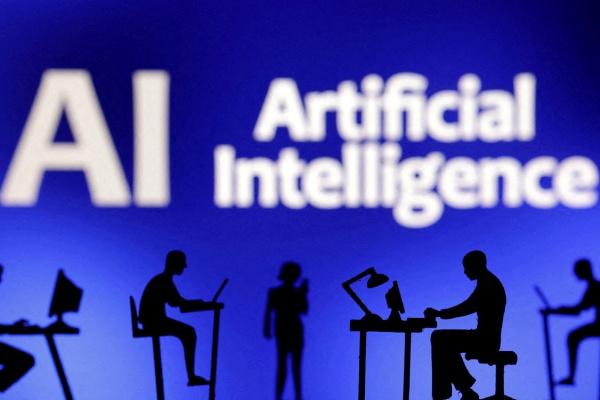
- Home
- Media Center
-
Events
- Wuzhen Summit
- Regional Forums
- Practice Cases of Jointly Building a Community with a Shared Future in Cyberspace
- World Internet Conference Awards for Pioneering Science and Technology
- The Light of Internet Expo
- Straight to Wuzhen Competition
- Global Youth Leadership Program
- WIC Distinguished Contribution Award
- Membership
- Research & Cooperation
- Digital Academy
-
Reports
- Collection of cases on Jointly Building a Community with a Shared Future in Cyberspace
- Collection of Shortlisted Achievements of World Internet Conference Awards for Pioneering Science and Technology
- Reports on Artificial Intelligence
- Reports on Cross—Border E—Commerce
- Reports on Data
- Outcomes of Think Tank Cooperation Program
- Series on Sovereignty in Cyberspace Theory and Practice
- Other Achievements
- About WIC
- 中文 | EN

G20 Education Dialogue in Beijing emphasizes tech's role in sustainable learning

Figurines with computers and smartphones are seen in front of the words "Artificial Intelligence AI" in this illustration taken, Feb 19, 2024. [Photo/Agencies]
The G20 Education Dialogue held in Beijing convened over 100 global education leaders and policymakers, aiming to explore the intersection of digital technology and sustainable education. Discussions focused on how digital transformation can improve global learning experiences and outcomes, supporting the United Nations' Sustainable Development Goals.
Wang Dinghua, Party Secretary of Beijing Foreign Studies University, which hosted the event, highlighted artificial intelligence and data science's potential to transform education. "G20 nations are committed to inclusive and equitable quality education," Wang said, emphasizing efforts to leverage digital tools for lifelong learning opportunities.
Luiz Costa, Brazil's former education minister, underscored the deepening partnership between Brazil and China, noting that cooperation in educational exchange and technological innovation is vital for tackling global challenges. "As Brazil and China strengthen ties, we demonstrate that international collaboration is key to addressing the complex demands of the digital era," Costa said.
Costa warned of potential disparities in digital access, advocating for inclusive technology use to ensure no student is excluded. Andreas Schleicher, OECD director for education and skills, echoed this sentiment, discussing AI's dual impact on learning. "AI amplifies both strengths and weaknesses in educational practices," Schleicher noted, calling for policies to promote transparent, equitable tech integration.
Kylie Readman, vice president of the University of Technology Sydney, stressed that technology alone cannot drive educational success. "It requires purpose, connection, and a learning environment that fosters student achievement," she said.
Participants also engaged in a youth dialogue, where young leaders discussed educational technology's role in addressing climate change. The consensus emerged that while technology can increase educational accessibility, it cannot replace teachers' vital role. "Even the best technology cannot substitute a good teacher," said Li Youwen, an associate professor at BFSU.
Alongside the primary event, the G20 Basic Education Dialogue and G20 Vocational and Technical Education Dialogue gathered experts to explore digital advancements' role in shaping future-ready educational systems.

The World Internet Conference (WIC) was established as an international organization on July 12, 2022, headquartered in Beijing, China. It was jointly initiated by Global System for Mobile Communication Association (GSMA), National Computer Network Emergency Response Technical Team/Coordination Center of China (CNCERT), China Internet Network Information Center (CNNIC), Alibaba Group, Tencent, and Zhijiang Lab.





